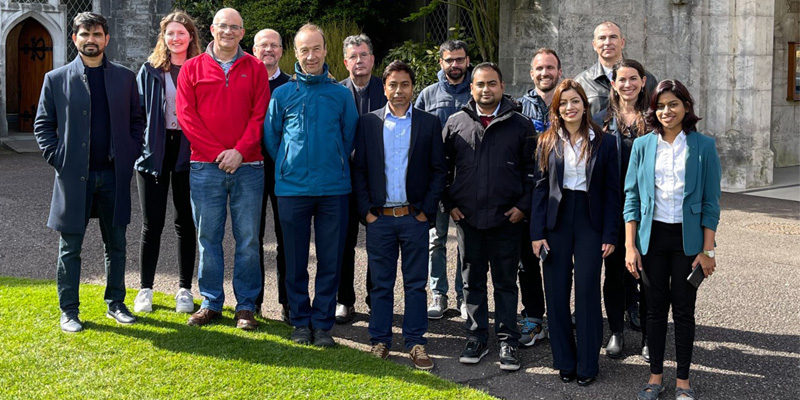In This Section
- Home
- About the College
- Governance
- College Committees & Steering Groups
- College Assembly
- College Council
- College Executive Management Committee
- College Academic Programmes and Curriculum Development Committee
- College Graduate Studies Committee
- College Research & Innovation Committee
- College Teaching Learning and Student Experience Committee
- College Student Recruitment and Outreach Committee
- College Sabbatical Research Leave Committee
- College of SEFS Adjunct Appointments Committee
- International Education Committee
- College Postgraduate Student Committee
- Athena SWAN Steering Group
- College Committees & Steering Groups
- Human Resources
- UCC STEM Awards
- Scholarships and Prizes
- Women in STEM Panel Talks
- Inaugural Professorial Lectures
- Athena SWAN in SEFS
- Proposal Calls
- Contact Us
- Science in Society Public Lecture Series
- Governance
- News
- Staff
- Schools and Departments
- Current Students
- Undergraduate Courses
- Postgraduate Courses
- International Students
- Research and Innovation
- Employability and Careers
- Outreach and Public Engagement
- Science Week
- Transition Year Programmes
Farmers to benefit as UCC researchers develop cost-effective new ammonia sensor

Researchers at University College Cork (UCC) have developed a groundbreaking new sensor that significantly advances the detection of ammonia pollution in real-time.
This technology promises to transform environmental monitoring, removing the cost barriers to farmers and supporting the enhancement of sustainable farming practices.
Efficient detection of ammonia (NH₃) is essential for reducing air and water pollution, safeguarding human health, promoting sustainable agriculture, and shaping climate and environmental policies.
Current technologies for NH₃ measurement include spectroscopic techniques and sensors that are expensive, bulky, and impractical for widespread or field applications. The new silicon nanowire sensor developed by UCC researchers offers a promising alternative.
This breakthrough is a result of the EU-funded RADICAL project led by UCC, with the findings published in the journal ACS Applied Materials & Interfaces.
The nanowire sensor is sensitive and precise, consumes minimal power, and operates at room temperature, allowing for real-time air quality monitoring.
As the sensor design is compatible with existing technology, they are cost effective and simple to produce. They can also quickly and reliably detect ammonia, even in small amounts, and provide a portable solution for use in diverse environments.
Ammonia pollution primarily originates from agricultural activities and poses significant environmental and health risks. In Ireland, where agriculture plays a major role, ammonia emissions are a critical concern. Urban sources such as vehicle emissions also contribute.
Once in the atmosphere, ammonia reacts with acidic gases to form particulate matter (PM2.5), which is harmful to human health and can lead to respiratory and cardiovascular diseases. Direct exposure can irritate the skin, eyes, and lungs.
Environmentally, excess ammonia causes water pollution, leading to algal blooms and eutrophication, which harm aquatic life. It also impacts air quality and climate.
Dr Vaishali Vardhan, lead author of the paper said:
“This new sensor is a powerful tool for both air quality monitoring and research. It is low in cost, small, and suitable for large-scale deployment. What distinguishes our technology is the use of bare silicon nanowires—avoiding complex hybridisation techniques—which makes the sensor more affordable and scalable. The integration of UV light further boosts its sensitivity, enabling efficient detection of ammonia at low concentrations”.
Dr Subhajit Biswas (main co-author) of the paper said:
“Ammonia monitoring is essential for protecting air quality and public health, particularly in regions with intensive agriculture. Our sensor’s ability to detect NH₃ at very low concentrations makes it well-suited for real-time monitoring, helping both environmental agencies and farmers—especially in Ireland—track and manage emissions more effectively”.
Professor Justin Holmes, RADICAL Project Coordinator commented:
"This pioneering technology is set to revolutionise environmental monitoring in the agricultural sector. It will allow farmers to make more informed decisions, benefiting both their businesses and the environment as a whole."
College of Science, Engineering and Food Science
Coláiste na hEolaíochta, na hInnealtóireachta agus na hEolaíochta Bia
Contact us
Block E, Level 3, Food Science Building, UCC, Cork, T12 YN60.
